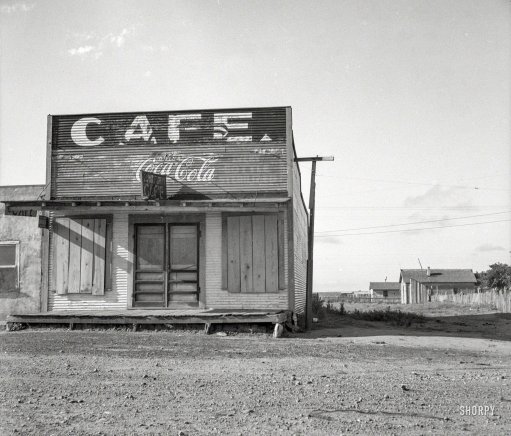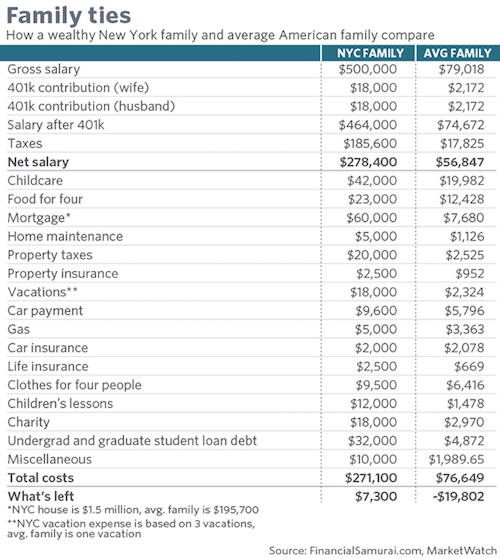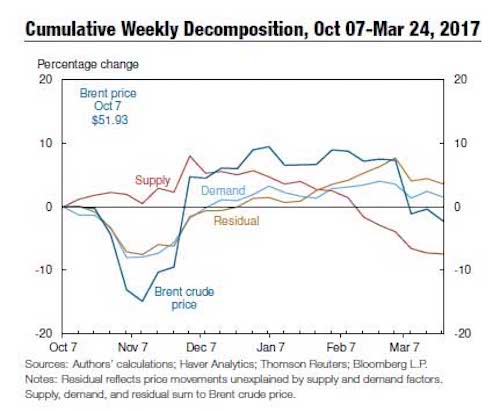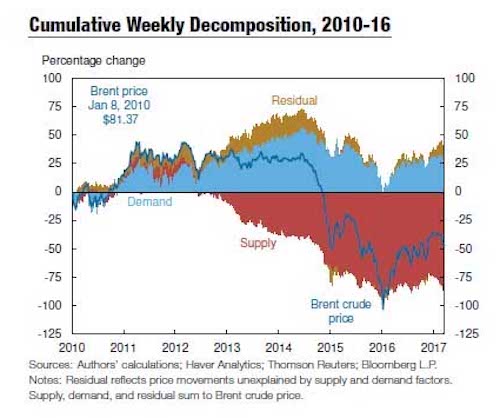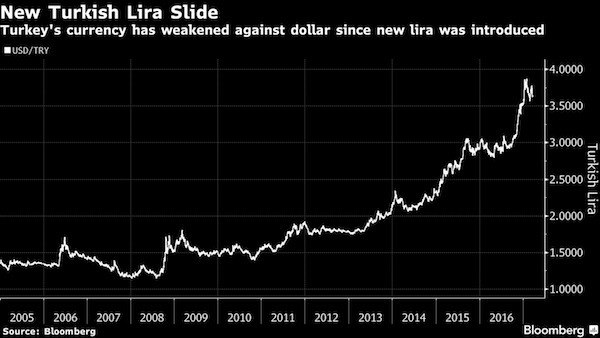
Vincent van Gogh Vineyards with a View of Auvers 1890



Alex Jones on RFK
11 minutes of Alex Jones exposing the truth about RFK Jr.
Share this with everyone pic.twitter.com/WL9QC9q1dy
— johnny maga (@_johnnymaga) November 12, 2023



Judaism
Anti-Zionist and anti-Israeli American Jews marched on the streets of Washington to support the Palestinian people and to protest the genocide of the occupying Israelis against the Palestinian people. pic.twitter.com/vhxdtxbjrk
— Torah Judaism (@TorahJudaism) November 12, 2023

Or Joe Biden.


Pepe

The 40th Original Marathon in Athens yesterday was filled with Palestine flags.



“..if he had the opportunity to market Mar-a-Lago, it would be sold to someone with “net worths in the multiple billions,” the likes of Elon Musk, kings, emperors, and heads of state..”
• The End of the Era of Justice (Paul Craig Roberts)
In the year 2023 Justice Is Nowhere to be Found in the Western World. Examples are numerous. I have written about the injustices inflicted on Julian Assange, Trump supporters, and those forced to submit to Covid “vaccination.” This time I will illustrate the point with the “fraud case” against Trump for allegedly overstating the value of his real estate holdings and with the entire world standing aside, the genocide of Palestinians under the rubric of Israel’s “self-defense.” The “fraud case” against Trump consists of an unsupported allegation against Trump by George Soros’ disciple NY attorney general Letitia James who is on record as a Trump-hater. It is not a trial. There is no jury. The staged proceeding is only for the judge to determine how big a fine Trump has to pay for allegedly–no proof is supplied, only Letitia’s accusation–overstating the value of his holdings.
The judge, Engoron, in my opinion, is indulging his publicly-avowed hatred of Trump. It is the judge who should be indicted and placed on trial. He is guilty of ignoring an appellate court’s ruling that set a statute of limitations on the case. He granted a summary judgment against Trump of $250,000,000 before the process of determining Trump’s fine began. Engoron and his staff are hardcore Democrats. They have made political contributions to the Democrat Party that are against the rules of conduct for judges and their law clerks. Additionally, the biased judge has ruled against Trump’s ability to speak his mind and has prevented Trump’s attorneys from pointing out the ridiculous nature of the charges. The charge that Trump overstated the value of his real estate holdings is only the unsupported opinion of the biased Trump-hater Letitia James who claims that New York State was damaged by Trump’s alleged overstatement of the value of his holdings.
The judge, who has no qualification as a real estate appraiser, says Trump’s Mar-a-Lago is only worth $18 million. Forbes magazine gives it a minimum value of $350,000,000. Neither New York nor anyone suffered from the alleged and unsupported claim that Trump overstated the value of his holdings. As US Representative Elise Stefanik stated in her ethics compliant filed against judge Engoron in New York, “no evidence was presented on trial to suggest fraud, and in fact material evidence suggested the opposite.” “The defendant paid back the sophisticated Wall Street banks, on time, in full, with interest, as agreed. No insurance company paid a penny. And these banks and insurance companies, allegedly defrauded, continue to do business with the defendant.” “Indeed, two banks had done their own analyses of President Trump’s net worth, as revealed in testimonies, and for some development projects the bank had courted President Trump’s business, not the other way around.”
Trump Organization had valued Mar-a-Lago between $426 million and $612 million in these statements, while Ms. James and the judge valued it at $18 million to $27.6 million, prompting ridicule from prominent real estate brokers who regarded the Trump-hating judge’s claim as “ludicrous.” The judge, who declared Trump to be “a bad man” dismissed from the record exculpatory evidence for Trump in the form of a sworn affidavit from Lawrence Moens, the top Palm Beach luxury broker, who said if he had the opportunity to market Mar-a-Lago, it would be sold to someone with “net worths in the multiple billions,” the likes of Elon Musk, kings, emperors, and heads of state. Engoron called the statement an “unsubstantiated dream,” but admitted testimony from someone on the attorney general’s side who helped come up with the $250 million disgorgement figure, suggesting banks lost out on more than $100 million in interest because the financial statements were inflated. THIS IS ONLY THE JUDGE’S AND LETITIA’S CLAIM, NOT THE BANKS’ CLAIM. THERE ARE NO INJURED PARTIES.

“Israel and the United States are sending a chilling message to the rest of the world. International and humanitarian law, including the Geneva Convention, are meaningless pieces of paper..”
• The Horror, The Horror (Chris Hedges)

DOHA, Qatar: I am in the studio of Al Jazeera’s Arabic service watching a live feed from Gaza City. The Al Jazeera reporter in northern Gaza, because of the intense Israeli shelling, was forced to evacuate to southern Gaza. He left his camera behind. He trained it on Al-Shifa hospital, Gaza’s largest medical complex. It is night. Israeli tanks fire directly towards the hospital compound. Long horizontal red flashes. A deliberate attack on a hospital. A deliberate war crime. A deliberate massacre of the most helpless civilians, including the very sick and infants. Then the feed goes dead. We sit in front of the monitors. We are silent. We know what this means. No power. No water. No internet. No medical supplies. Every infant in an incubator will die. Every dialysis patient will die. Everyone in the intensive care unit will die. Everyone who needs oxygen will die.
Everyone who needs emergency surgery will die. And what will happen to the 50,000 people who, driven from their homes by the relentless bombing, have taken refuge on the hospital grounds? We know the answer to that as well. Many of them, too, will die. There are no words to express what we are witnessing. In the five weeks of horror this is one of the pinnacles of horror. The indifference of Europe is bad enough. The active complicity by the United States is unfathomable. Nothing justifies this. Nothing. And Joe Biden will go down in history as an accomplice to genocide. May the ghosts of the thousands of children he has participated in murdering haunt him for the rest of his life. Israel and the United States are sending a chilling message to the rest of the world. International and humanitarian law, including the Geneva Convention, are meaningless pieces of paper.
They did not apply in Iraq. They do not apply in Gaza. We will pulverize your neighborhoods and cities with bombs and missiles. We will wantonly murder your women, children, elderly and sick. We will set up blockades to engineer starvation and the spread of infectious diseases. You, the “lesser breeds” of the earth, do not matter. To us you are vermin to be extinguished. We have everything. If you try and take any of it away from us, we will kill you. And we will never be held accountable. We are not hated for our values. We are hated because we have no values. We are hated because rules only apply to others. Not to us. We are hated because we have arrogated to ourselves the right to carry out indiscriminate slaughter. We are hated because we are heartless and cruel. We are hated because we are hypocrites, talking about protecting civilians, the rule of law and humanitarianism while extinguishing the lives of hundreds of people in Gaza a day, including 160 children.
[..] Israel and Washington’s cynicism is breathtaking. There are no differences in intent. Washington only wants it done quickly. Humanitarian corridors? Pauses in the shelling? These are vehicles to facilitate the total depopulation of northern Gaza. The handful of aid trucks allowed through the border at Rafah with Egypt? A public relations gimmick. There is only one goal – kill, kill, kill. The faster the better. All Biden officials talk about is what comes next once Israel has finished its decimation of Gaza. They know Israel’s slaughter will not end until Gazans are living in the open without shelter in the southern part of the strip and dying because of a lack of food, water and medical care.

“We are far more capable of bearing the costs, so there is no need to compare or be alarmed by the magnitude of the numbers..”
• The War According to Hamas (Chris Hedges)
Basel al-Araj, a Palestinian resistance leader, shortly before Israel’s 2014 invasion of Gaza, laid down the fundamental rules for warfare against the Israel. The rules by al-Araj, not a member of Hamas, provide the Palestinian lens for the incursion by Israeli forces in Gaza. While Israel’s superior firepower — its air force, missiles, tanks, armored personnel carriers, drones, naval forces, mechanized units and artillery — make it possible to inflict huge numbers of Palestinian casualties, most of them civilians, while Israel can level whole neighborhoods and turn hospitals, schools, power stations, water treatment plants, bakeries, mosques and churches into piles of concrete, this does not translate into a defeat of the Palestinian resistance groups.
Al-Araj argued that the fight with Israel cannot be measured with body counts. The Israelis will be able to kill far greater numbers of Palestinians. Resistant movements, he wrote, always suffer disproportionate losses. In the independence war in Algeria, between 1954 and 1962, upwards of 1.5 million Algerians — or around 10 percent of the population — were killed by the French. In the airport in Algiers, the country’s capital, is a huge sign that reads: “Welcome to Algeria. Land of a million Martyrs.” “We are far more capable of bearing the costs, so there is no need to compare or be alarmed by the magnitude of the numbers,” he wrote. Al-Araj, who led hunger strikes while in Palestine Authority prisons, was long a target for Israel. Israel’s counter-terrorism unit, Yamam, pursued him for months before raiding his home on March 6, 2017 in el-Bireh. After a two-hour gun battle, Israeli forces, which fired rockets into the building, burst inside and executed him at close range. He was 31.
The fight with Israel, al-Araj reminded Palestinians, must “follow the logic of guerrilla warfare or hybrid warfare, which Arabs and Muslims have become masters of through our experiences in Afghanistan, Iraq, Lebanon, and Gaza.” Never defend “fixed points and borders.” Draw the enemy into an ambush, accomplished by light resistance and tactical withdrawals. Strike the flanks and the rear. The calculus of asymmetric warfare is very different from conventional war. And what Israel defines as success, including the seizing of territory, numerous deaths and the destruction of infrastructure and buildings, matters little to the resistance fighter.The goal of Palestinian fighters is to remain elusive, to carry out lightning strikes and recede back into the rubble or the vast tunnel network under Gaza.
[..] Israel has banned the foreign press from reporting from Gaza. It has killed over 40 Palestinian journalists and media workers. It also has instituted prolonged blockages of the internet and cell phone service. No doubt, this heavy handed censorship is done to limit the horrific images of civilian casualties. But I suspect it is also intended to block images of a ground offensive that is tougher, more protracted and more costly than Israel anticipated. Israel invests tremendous resources in its propaganda campaign, getting networks such as CNN to repeat back its talking points. Jake Tapper should be an honorary Israeli Defense Forces (IDF) spokesman. Al-Araj warned about the attempt by Israel to demoralize fighters by posting photos and videos of Israelis occupying landmarks and public spaces.
A video being shared on social media shows the raising of the Israeli flag on a beach in Gaza. A group of soldiers surround the flag and sing the Israeli national anthem. In October last year, Jewish settlers occupied the Ibrahimi mosque in the West Bank town of Hebron, where a Jewish settler, Barach Goldstein, gunned down 29 Palestinians in 1994 as they prayed. The settlers held a music festival and dance party in the mosque. They hung an Israeli flag from the roof. Videos have circulated that denigrate and ridicule Palestinians.

The Undertaker.
• Israel Seeks To Appoint Tony Blair As Gaza Humanitarian Coordinator (ToI)
Israel is seeking to install former British prime minister Tony Blair as a humanitarian coordinator for the Gaza Strip, according to a report Sunday, out of a desire to improve the humanitarian situation inside the Palestinian enclave and reduce international pressure as it continues to wage its war on Hamas. The Ynet news outlet, citing unnamed senior officials, said Prime Minister Benjamin Netanyahu hopes to leverage Blair’s experience as former envoy to the region for the Middle East Quartet to temper international concerns over the civilian cost of Israel’s campaign in Gaza. The report indicated Blair has been contacted on the matter and talks have been ongoing in recent weeks. The former British leader’s office told Ynet in response that “he has not been given or offered a position,” but did not directly deny any contact.
Ynet said the exact definition, scope and authority of the proposed role had not yet been clearly defined, adding that there would be an emphasis on “providing medical treatment and medicines, and on the possibility of evacuating the wounded and sick from the Strip.” According to the report, efforts at easing the humanitarian situation in Gaza are being coordinated by Israel’s health and defense ministries, with the former assisting in a number of projects in recent weeks, including efforts by international actors to set up field hospitals in Egypt and the arrival of a hospital ship from France. The Defense Ministry and the IDF also understand that in order to obtain time for the war against Hamas, the military’s actions in Gaza need to be seen as legitimate, and that legitimacy is conditional on the humanitarian situation.
[..] Blair’s office said in a statement to Ynet that “Mr. Blair maintains an office in Israel and he continues to work on matters tied to Israel and the Palestinians. Understandably, he has conversations with people in the region and other places in order to see what can be done, but he was not given or offered the role.” Blair served as British premier from 1997 to 2007 and as envoy for the Quartet from 2007 to 2015. The Middle East Quartet consists of the United Nations, the European Union, the United States and Russia, and was established to help mediate Israeli-Palestinian peace negotiations. It has been largely inactive in recent years, as Western relations with Russia have soured. On October 11, Blair, who is a longtime member of Labour Friends of Israel, released a statement condemning Hamas’s brutal onslaught in southern Israel, and calling for change.


“..Washington is “turning the entire planet into an armed madhouse” using taxpayers’ dollars.”
• ‘Immoral’ US Warfare ‘Never Sought to Minimize Civilian Deaths’ (Sp.)
Throughout its history, the United States has never allowed concerns about the civilian death toll to impact its warfare strategy, and current developments in Gaza are yet another glaring example of this, scholar, educator and journalist K.J. Noh told Sputnik. “The fundamental immorality of US warfare… is that it has never sought to minimize the deaths of civilians. We know that US wars recently have been somewhere in the range of 90 percent civilian deaths,” the scholar underscored. Recalling US doctrine implemented in countries like Korea, Vietnam, and elsewhere, it has been “simply to kill anything that moves. You create a free fire zone, you kill anything that moves, and the murder is indiscriminate,” the pundit said. Afterwards, they may use mainstream media to “paste it over” with “PR means and releases.”
Whether it is fuelling weapons to fuel the NATO proxy war against Russia in Ukraine, or sending military assistance to Israel in its fight against Hamas, “fundamentally, the business of the US is war,” K.J. Noh emphasized. “You know, the US is number one supplier of arms to the world. It’s 40 percent of all arms sales… and it sells them to quisling governments and to governments that are involved in the Pacific pivot – this escalation to war against China,” underscored the scholar, adding that Washington is “turning the entire planet into an armed madhouse” using taxpayers’ dollars.
[..] After the Biden administration asked for an additional $14 billion for Israel from Congress, Washington committed to delivering to Tel Aviv Iron Dome air defense missiles, small diameter bombs and Joint Direct Attack Munition (JDAM) kits, besides the earlier agreed weapons deals, as per US media reports. At the same time, unlike the case with Ukraine, National Security Council spokesperson John Kirby acknowledged that Washington’s military supplies to Israel were shrouded in secrecy. During an October 23 press briefing, Kirby said that “We’re being careful not to quantify or get into too much detail about what they’re getting — for their own operational security purposes, of course.” “Transparency in war is largely an illusion or at best, selective. You know, war is always deception. Both the published lists and the unpublished lists. The published lists are designed to intimidate, or message, or signal, or posture. And the unpublished lists are… often hiding dirty criminal tactics.”

Because he refuses to talk.
• Zelensky May Be Ousted – Ex Presidential Aide (RT)
Ukrainian President Vladimir Zelensky’s unwillingness to consider peace talks with Russia might lead him to being ousted to make such negotiations possible, Oleg Soskin, an adviser to two former Ukrainian presidents, said on Saturday. Zelensky, who continues to maintain that victory should be achieved on the battlefield, simply “cannot” enter peace talks with Moscow, Soskin said on his YouTube channel. Such actions, he believes, are pushing Russia and at least some of Ukraine’s Western backers to think that they need someone else to represent Kiev who can “agree on even a temporary truce.” In order to achieve that, the current Ukrainian leadership needs to be “neutralized,” the former presidential aide added.
The idea of peace talks between Russia and Ukraine has become a “prevalent narrative” not only in Russia but in the West as well, Soskin suggested. He noted that French President Emmanuel Macron and Italian Prime Minister Giorgia Meloni expressed such ideas not so long ago. Macron told the BBC in an interview this week that although it was France’s “duty” to support Kiev the time might have come for some “fair and good negotiations” with Russia. Meloni recently told a pair of Russian pranksters, Vovan and Lexus, that “there is a lot of fatigue” in the EU over the conflict. “We are near the moment in which everybody understands that we need a way out,” she added at that time.
Soskin, a renowned economist who was the deputy head of the Institute of the World Economics and International Relations of the Ukrainian Academy of Sciences in the 1990s, said that the EU would also be potentially unable to satisfy Kiev’s needs for military equipment and ammunition, particularly if US military aid decreases. The former official served as a senior adviser to Ukraine’s first president, Leonid Kravchuk, in the early 1990s and was later an economic adviser to the nation’s second leader, Leonid Kuchma, between 1998 and 2000. Kiev has repeatedly ruled out any talks with Moscow and demands a complete withdrawal of Russian troops from all territories Ukraine claims as its own. Zelensky reiterated this demand in an interview with Reuters this week, adding that Kiev would continue the fight even without US aid if need be.
He also denied media reports about Ukraine’s Western backers allegedly encouraging it to engage in peace negotiations with Moscow. “This is not going to happen,” he said last week. Russia has repeatedly signaled its readiness to engage in negotiations with Kiev but has insisted that such talks should take Moscow’s security interests and the “reality on the ground” into account. In the autumn of 2022, four former Ukrainian territories – including the two Donbass republics – officially joined Russia, following a series of referendums. Kiev declared the votes a “sham” and has sought to reclaim control over the four territories, as well as Crimea, which joined Russia in 2014 following another referendum.

Two ex-NATO guys both apparently want more war with Russia.
“We need a new European security architecture in which Ukraine is in the heart of NATO.”
• Former NATO Chief Suggests Ukraine Joins Bloc Without Lost Territory (TASS)
Former NATO Secretary General Anders Fogh Rasmussen said NATO should invite Ukraine to join the alliance without the territories it no longer controls, according to an interview published by the Guardian. “The time has come to take the next step and extend an invitation for Ukraine to join NATO,” he told the Guardian. “We need a new European security architecture in which Ukraine is in the heart of NATO.” “The absolute credibility of Article 5 guarantees would deter Russia from mounting attacks inside the Ukrainian territory inside NATO and so free up Ukrainian forces to go to the frontline,” said Rasmussen, who headed the bloc from 2009-2014.
He said the alliance would have to send a “clear message to Russia that any violation of NATO territory would be met by a response.” He added that in some ways the proposal is similar to imposing a no-fly zone over Ukrainian territory. Rasmussen insisted that the move would not freeze the conflict or force Ukraine to cede territory to Russia. The Guardian said Rasmussen worked alongside Andrey Yermak, the chief of staff of the Ukrainian presidency, ahead of the last NATO summit in Vilnius this year that ended with no invitation for Ukraine to join.

“..As for obtaining security guarantees, that would mean NATO membership for Ukraine, James Stavridis argued..”
• Ukraine Should Eye ‘Land-For-Peace’ Deal – Ex-NATO Admiral (Sp.)
As Kiev seeks to revitalize its failed counteroffensive against the backdrop of increasing “Ukraine fatigue” in the West, Moscow has repeatedly urged the regime to understand that despite promising military successes to its NATO donors, achieving them is growing ever more elusive. Ukraine should hope for a “land-for-peace conclusion to combat,” retired US Admiral and former NATO Supreme Allied Commander James Stavridis has argued. After the Kiev regime’s much-heralded counteroffensive failed, even the delivery of F-16 fighter jets – promised sometime next year – is not likely to pull off a “real game change,” Stavridis wrote for Bloomberg. He urged Ukraine to resign itself to the fact that it will not manage to seize the new Russian territories, such as the Donetsk and Lugansk People’s Republics or the Kherson and Zaporozhye regions.
Accordingly, the former commander drew parallels with the outcome of the Korean War, which ended with an armistice in 1953, and suggested that Ukraine should aim for the “South Korean scenario” as its best bet. “This will probably bog down into a frozen conflict; the sooner large combat operations stop, the sooner the Ukrainians will begin to reconstruct,” Stavridis wrote, and laid out his vision of what steps Kiev ought to aim for: “So three lessons of Korea pertain for Ukraine: find the funds for reconstruction as rapidly as possible; construct real and enduring security guarantees; and be willing to negotiate a land-for-peace conclusion to combat.” “That is a realistic scenario,” claimed Stavridis. According to Stavridis, Western firms are already eying staking out their claims to “postwar construction activities in Ukraine,” in such aspects as “mass communications, electric power facilities, water treatment and new residential development.”
And as to where the money for all of that would come from, the ex-general had a ready answer: “the potential availability of hundreds of billions of dollars in Russian funds that are under sanction in the West.” The overall value of frozen Russian sovereign assets in Europe since the Ukraine conflict escalated is estimated at 211 billion euros ($223 billion). While Brussels has repeatedly warned it intends to tap into these assets for the benefit of Ukraine, the bloc has so far failed to invent a legal mechanism for doing so. Pundits interviewed by Sputnik have explained that this is nothing but “wishful thinking,” adding that “it would be a sheer violation of property rights.” Nevertheless, the ex-commander waxed lyrical in his article, enthusing that a “Korean-style miracle of reconstruction” could be “on the horizon for Ukraine.”
As for obtaining security guarantees, that would mean NATO membership for Ukraine, James Stavridis argued, yet again citing the example of South Korea, which holds Major Non-NATO Ally status with the US.

“..You’d think that the EU might want to at least wait for an improvement in the public sentiment among Ukrainians..”
• The EU Praises Ukraine’s ‘Achievements,’ But They Are Laughable (Marsden)
The European Commission just released a report card for countries seeking to join the European Union. And while Türkiye has been waiting on the sidelines for years, it now finds itself criticized and moving further away from accession for its unwillingness to drink on command the Kool-Aid that Brussels doles out. Meanwhile, Ukraine is getting kudos for achieving the political equivalent of basic potty training – and even those achievements are debatable. “Ukraine has completed … well over 90% of the necessary steps that we set out last year in our report,” said European Commission President Ursula von der Leyen. What kind of dodgy bell curve grading is that? There’s a term for what the EU is doing here. It’s called stringing someone along – in this case, with a participation trophy for effort. Ukraine and other countries, like Moldova and Georgia, want into the bloc.
But the EU can barely afford to run what it has now, particularly with Germany and France – its economic engines – struggling from the EU’s own anti-Russian sanctions blowback on industry. Forget committing outright to taking on any more clown acts. So the European Commission is now issuing these condescending report cards, saying that Ukraine has met four of the seven pre-conditions, not for joining the bloc, but for just opening negotiations. Kiev still needs to de-corrupt, presumably to be more aligned with the rest of the EU’s corruption level, it’s being told – which let’s face it, is a pretty low bar. It also needs to de-oligarchize (because Europe only has one Queen, and that’s Ursula herself). It also needs to learn to play nice with minorities and respect their basic rights – like a preschooler needs to be told to do.
So what did Kiev do right, according to Brussels? It has “established a transparent pre-selection system for the Constitutional Court judges and reformed the judicial governance bodies,” the report says. But just last month, Reuters reported that Kiev was on a hiring spree of 2,000 judges amid a “huge shortfall” and EU pressure. Doesn’t sound like the situation is too stable, or resolved. Sounds instead like it’s cramming for an exam or rushing to be able to just tick a box. Granted, there has been a corruption crackdown documented by the mainstream media over the past several months, including the dismissal of the Supreme Court Chief Justice, but when corruption is so systemic and public trust in the judiciary is estimated to be in the single to low double digits, where’s the concrete proof that the new players are a substantial improvement over the old ones? You’d think that the EU might want to at least wait for an improvement in the public sentiment among Ukrainians before giving its stamp of approval.
“Ukraine has taken positive steps in a wider and systemic effort to address the influence of oligarchs,” the report concludes. But is that really the result of a deliberate cleanup – or just due to circumstances? The Wilson Center has detailed how “war was making an impact on the Ukrainian oligarchy by physically destroying the oligarch-owned industrial complexes.” Some oligarchs have fled Ukraine for places like the South of France, as Le Monde has reported. Does it count for Brussels as “de-oligarchization” efforts if Ukrainian oligarchs have fled to Europe with their considerable assets? Seems like perhaps Kiev is pulling the escalator up by the handrail on this particular “achievement” attributed to it.

I think RFK has had his peak.
• The DC Establishment Thinks RFK Could Win, And They’re Panicking (Hill)
Making the rounds of opinion-influencer social media and politically oriented podcasts over the last week to gauge the current state of the presidential race, one could be excused for believing that no great shake-up had occurred. In Trump World, all the discussion was about the former president’s highly politicized civil fraud trial in New York and how it would backfire by making Trump a more formidable candidate. Meanwhile, left-leaning outlets were hyping GOP dysfunction in the House and the Republican losses in the off-year elections as an early indicator that Biden will fare better than expected next November. But one development that sent shock waves through the entire class of paid political consultants inside the Beltway went almost unmentioned publicly.
A topic of constant discussion and not a little bit of anxiety on both sides was the extraordinarily strong showing of third-party candidate Robert F. Kennedy Jr. in two recent national polls. Both of the polls showed Kennedy leading both President Biden and former President Trump among the key electoral demographics of independent voters and voters under 45 years of age. Just how disturbing is this development for the uni-party establishment in Washington? Disturbing enough that the New York Times ran a brief story essentially dismissing its own poll results under the interpretive headline, “What’s Behind Kennedy’s Poll Numbers? Voters Dread a Trump-Biden Rematch.” The piece reads almost as a parody of a damage-control exercise.
It included the remarkable disclaimer that the poll of six key presidential battleground states, which found RFK the choice of nearly a quarter of those polled in a three-way matchup with Biden and Trump, “almost surely inflates the support of Mr. Kennedy.” But the argument does not bear scrutiny that Kennedy’s remarkably strong showing is merely a function of dissatisfaction with the prospect of a Biden-Trump rematch. His fundraising haul for the third quarter, $8.7 million, demonstrates robust support for his candidacy, not just dissatisfaction with other choices. Significantly, Kennedy raised millions of dollars from people who didn’t donate at all in the last two presidential elections, a sign that he’s activating new voters. Remarkably, he maintains a 19 percent favorability lead with voters over both Biden and Trump — this despite a concerted effort by almost every mainstream media outlet to dismiss him as a conspiracy theorist and crank.

“..seeking to block testimony from four expert witnesses set to take the stand during the defense phase. Their testimony would address the accuracy of valuations contained in statements of financial condition submitted to Deutsche Bank and other firms for the purpose of securing favorable terms for loans and insurance. In the view of the attorney general’s office, such testimony is beside the point given that the judge has already ruled that Trump is guilty of fraud.“
• Trump Lawyers to Mount Counterattack in NY Civil Case (ET)
The media and public should brace themselves for the most heated phase of the civil fraud trial of former President Donald Trump when courtroom proceedings resume on Nov. 13—if past interactions among the defense, the judge, and government lawyers are any indication. The defense will begin to make its case on behalf of the 45th president and 2024 candidate, as well as his two sons and daughter, who are no longer defendants in the case yet have faced relentless and acrimonious cross-examination on the witness stand over the past two weeks. President Trump’s eldest son, Donald Trump Jr., is expected to be the first to testify for the defense. Trump lawyer Christopher Kise and Judge Arthur Engoron feuded throughout the cross-examination of President Trump, Donald Trump Jr., Eric Trump, and Ivanka Trump.
The defense attorney has objected constantly, saying that questions posed were irrelevant to the legal issues at hand or that no one could reasonably expect the people on the stand to recall the details of documents, records, meetings, and conversations from as far back as 2012. As if to add further contentiousness to the proceedings, New York Attorney General Letitia James’s office on Nov. 8 sent a letter to Judge Engoron seeking to block testimony from four expert witnesses set to take the stand during the defense phase. Their testimony would address the accuracy of valuations contained in statements of financial condition submitted to Deutsche Bank and other firms for the purpose of securing favorable terms for loans and insurance. In the view of the attorney general’s office, such testimony is beside the point given that the judge has already ruled that Trump is guilty of fraud.
Nor has the pro-Trump side been inactive during the run-up to the next phase of the trial. On Nov. 10, Rep. Elise Stefanik (R-N.Y.) sent a lengthy letter to the New York State Commission on Judicial Conduct, spelling out a litany of complaints about how Judge Engoron has conducted himself and his alleged bias against the respondents in the lawsuit “This judge’s bizarre behavior has no place in our judicial system, where Judge Engoron is not honoring the defendant’s rights to due process and a fair trial. These serious concerns are exacerbated by the fact that the defendant is the leading candidate for President of the United States, and it appears the judicial system is being politicized to affect the outcome of the campaign,” Ms. Stefanik wrote. She then cited the judge’s reference to the former president as “just a bad guy” deserving of prosecution by the attorney general, and his blunt statement to President Trump that “we are not here to listen to what you have to say.”

“..we pledge to you that we will root out the communists, Marxists, fascists, and radical left thugs that live like vermin within the confines of our country.”
• Trump’s Veterans Day Message Was Quite Different From Biden’s (ET)
President Joe Biden and former President Donald Trump released differing messages on Nov. 11, Veterans Day. “Today, we honor the story of our veterans—the story of our nation at its best,” President Biden wrote on X, formerly known as Twitter. “On Veterans Day, let’s recommit to fulfilling our one sacred obligation as a nation: to prepare those we send into harm’s way and care for them and their families when they come home.” In a Veterans Day speech at the Memorial Amphitheater in Arlington National Cemetery, he highlighted “those who have always, always kept the light of liberty shining bright across the world,” while making reference to his late son, Beau, who was deployed to Iraq about 15 years ago.
“We come together today to once again honor the generations of Americans who stood on the front lines of freedom. … to once again bear witness to the great deeds of a noble few who risked everything, everything, to give us a better future,” President Biden said. During the event, the president was joined by First Lady Jill Biden, Vice President Kamala Harris, second gentleman Douglas Emhoff, and several members of his Cabinet. On Nov. 11, President Biden announced that military veterans who were exposed to toxins could be able to enroll in no-cost health care starting next year.
President Trump marked Veterans Day with a message on his Truth Social social media platform that read, “To our heroic veterans, I am grateful for your service to our country and honored to wish you a Happy Veterans Day.” He added that there’s “no greater act of selfless service than defending America’s God-given freedoms and liberty.” Hours later, he wrote a message on the platform noting, “[In] honor of our great veterans on Veterans Day, we pledge to you that we will root out the communists, Marxists, fascists, and radical left thugs that live like vermin within the confines of our country.” They will “do anything possible, whether legally or illegally, to destroy America, and the American dream,” wrote President Trump, who was later seen at a UFC fight in New York on Nov. 11. “The threat from outside forces is far less sinister, dangerous, and grave, than the threat from within,” he wrote. “Despite the hatred and anger of the radical left lunatics who want to destroy our country, we will make America great again!”

The US is set to start paying over $1 trillion in interest on its debt this year.
• Moody’s US Credit Warning Will Accelerate Dedollarization (Sp.)
The New York City-headquartered credit rating giant lowered its outlook of America’s creditworthiness from “stable” to “negative” on Friday, citing the country’s worsening fiscal position. Sputnik reached out to veteran economist and macroeconomics specialist Dr. Sergio Rossi for his take on the implications of Moody’s move. The White House slammed Moody’s over its threat to downgrade the US’s credit rating, with press spokeswoman Karine Jean-Pierre suggesting that the worsening outlook was “yet another consequence of congressional Republican extremism and dysfunction.” Deputy Treasury Secretary Wally Adeyemo also challenged the decision, emphasizing that “while the statement by Moody’s maintains the United States’ AAA rating, we disagree with the shift to a negative outlook.
The American economy remains strong, and Treasury securities are the world’s preeminent safe and liquid asset,” Adeyemo assured in a statement. “The Biden administration has demonstrated its commitment to fiscal sustainability, including through the more than $1 trillion in deficit reduction included in the June debt limit deal as well as President Biden’s budget proposals that would reduce the deficit by nearly $2.5 trillion over the next decade,” the deputy Treasury chief added. Moody’s decision came just hours after Treasury Secretary Janet Yellen’s meetings with Chinese counterpart He Lifeng in San Francisco on Friday ahead of the upcoming Asia-Pacific Economic Cooperation summit this coming week. Yellen, who assured recently that Washington could “certainly afford” to keep pumping tens of billions in taxpayer money to conflicts in Ukraine and Israel, has yet to comment on Moody’s decision.
Moody’s is the last of the big three international credit agencies signaling the possible downgrade of the US’s rating, with Standard and Poor’s already doing so in 2011, citing political polarization after what was then the latest debt ceiling showdown. Fitch downgraded the US to an AA+ rating in August, citing an “expected fiscal deterioration over the next three years,” and the last-minute debt deal reached in June, when the country again teetered on the brink of defaulting on its close to $33 trillion national debt. Yellen “strongly disagreed” with that decision, suggesting it was based on “outdated data.” Sovereign credit ratings are designed to evaluate risks associated with lending money to a country, but also offer signals to financiers on the potential risks involved with investing into a country. The worse the rating, the worse the risk is perceived to be. Moody’s lowest possible rating is a C, which signals that the borrower is in default of some or all of its financial obligations.
The outlook downgrade comes as Washington heads for another shutdown deadline on November 17, with Republicans in the House of Representatives tabling a bill to continue funding the government without new appropriations for Ukraine or Israel. The White House has blasted the stopgap funding bill as an “extreme” and “unserious” proposal, with Jean-Pierre calling it “a recipe for more Republican chaos and more shutdowns – full stop.” Just how “unserious” the House proposal is will be seen this week as lawmakers negotiate to get the stopgap funding through, with recently picked House Speaker Mike Johnson seemingly unlikely to back down on Ukraine after his predecessor, Kevin McCarthy, was ousted from the job in October over allegations of proposing “secret side deals” for additional Ukraine cash.
The Moody’s outlook shift, combined with the seemingly never-ending shutdown crisis, inflation, the fallout of the conflicts in Ukraine and the Middle East, and the growing signs of a looming US recession, are all bad news for Washington and the West in general, says Dr. Sergio Rossi, a professor of macroeconomics and monetary policy at the University of Fribourg in Switzerland. “The situation for the US public finance is rather worrying indeed, since the US federal government has been accumulating fiscal deficits for a long period of time, and currently the economic outlook is very problematic for a number of stakeholders in this country and beyond it,” Dr. Rossi told Sputnik.

“..on a voluntary basis, at first..”
“Your access to your financial assets can be denied or stopped if you don’t do what you’re told.”
• EU Moves Forward With Digital ID Despite Security Concerns (AmG)
The European Parliament and the Council of the European Union reached a final agreement this week on the establishment of “European Digital Identity Wallets,” the first central and fully digital identification system for all Europeans. “Under the new law, the EU will offer its citizens so-called ‘digital wallets’—on a voluntary basis, at first—which will contain digital versions of their ID cards, driving licenses, diplomas, medical records, and bank account information,” the European Conservative reported. These documents will be recognized as means to access online services throughout Europe, and citizens will be able to prove their identity or share electronic documents from their wallets “with a click of a button,” the legislators hope. “This marks an important step towards the Digital Decade 2030 targets on the digitalization of public services,” the EU Commission said in a statement Wednesday.
“All EU citizens will be offered the possibility to have an EU Digital Identity Wallet to access public and private online services in full security and protection of personal data all over Europe.” The agreement reached by the co-legislators is now subject to formal approval by the European Parliament and the Council. Once formally adopted, the European Digital Identity framework will enter into force on the 20th day following its publication in the Official Journal. The agreement came just a few weeks after Christine Lagarde, the head of the European Central Bank, announced that the European Union was moving forward with the development of its new central bank digital currency (CBDC)—the digital Euro. Conservative EU lawmakers and cybersecurity experts have opposed these developments, warning that large-scale abuse is inevitable in an all-encompassing digital identity system.
Dutch MEP Rob Roos sounded the alarm on X, Wednesday: “BREAKING: Very bad news. The European Parliament and Member States just reached an agreement on introducing the Digital Identity,” he said. Roos noted that following the agreement, EU Commissioner Thierry Breton said: “‘Now that we have a Digital Identity Wallet, we have to put something in it…’, suggesting a connection between CBDC and eID.” Ahead of the the European Parliament’s decision, over 500 privacy and cybersecurity experts from 39 countries signed a joint letter warning that the legislation “fails to properly respect the right to privacy of citizens and secure online communications.” Roos lamented that most EU lawmakers “ignored all the privacy experts and security specialists. They’re pushing it all through.” The Dutch conservative said that he is not optimistic, but “it is not too late yet.” “Parliament still has to vote about this. Let your MEP know that you oppose the Digital Identity and that you want your MEP to vote against it!” he said.
The Biden White House released a “Comprehensive Framework for Responsible Development of Digital Assets” in September of last year. Catherine Austin Fitts, financial expert and Assistant Secretary of Housing and Urban Development during the H.W. Bush administration, has long been a vocal opponent of CBDC systems. In a recent interview, she warned that a 100 percent digital system would be controlled centrally and that a person’s money could potentially be limited to a particular geographical area. Such a totalitarian system, she argued, could also allow the State to limit people on what they are allowed to buy. “Let’s say I want to mandate a vaccine. Your financial transaction ability can be turned off,” Fitts said. “Your access to your financial assets can be denied or stopped if you don’t do what you’re told.”






3-day fast


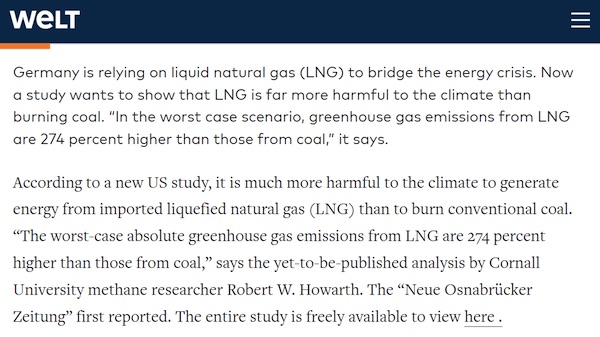

Common ground
It’s not too late to fix our food system. Watch @CommonGroundDoc an uplifting story on how regenerative farming can balance the climate, heal our bodies, and bring our entire ecosystem back to life. Learn more ➡️ https://t.co/ILlrlpFJ7w pic.twitter.com/u71lXFypCC
— Stefanie Spear (@StefanieSpear) November 12, 2023

Ravens
Ravens partner for life, monogamous, with behaviours strengthening their relationship, like serenading each other or joy flights
Perhaps these two are bonding look at the synchronised flight, dancing with identical pirouettes,
pic.twitter.com/4nn6nvXMZv— Science girl (@gunsnrosesgirl3) November 12, 2023


An extraordinarily rare glimpse of one of the last Malayan tigers; there are only 150 left on Earth. Their rapid decline is due to deforestation & poaching for body parts. 1400 snares were found in their protected area. So, take a good look, we may not see one again.


Support the Automatic Earth in wartime with Paypal, Bitcoin and Patreon.







